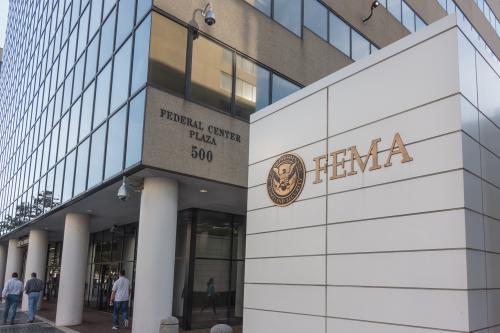Editor’s Note: On May 12, Brookings President Strobe Talbott shared his thoughts with Kai Ryssdal of “Marketplace” on how coordination among the world’s largest polluters can work to control climate change, citing the Cold War as an interesting analogy to today’s environmental battles. Talbott recently co-authored Fast Forward: Ethics and Politics in the Age of Global Warming with William Antholis.
Kai Ryssdal: Now that the energy bill is on the legislative calendar, we’re going to be hearing more about global warming and how to go about stopping it. Strobe Talbott, the president of the Broookings Institution, says in a new book that the relevant comparison here is nuclear weapons, and how the superpowers managed not to blow everybody up over the course of the Cold War. He says we ought to control climate change the same way — get the big polluters on board first, and then you bring the whole world into it.
Strobe Talbott: The United Nations is very important to this process, but it is a mistake, I think, to count on a group of 192 different countries to come to a consensus in a meaningful time frame that will allow us to take meaningful action. We need to count more on what the United States, the European Union, China and India can do on their own, but coordinating with each other rather than a formal, legally-binding treaty. It’d be great to have a formal, legally-binding treaty, but it just takes too long to get one.
Listen to full story and interview on marketplace.org (at 8:19) »



Commentary
Climate Change Fight Like the Cold War
May 12, 2010